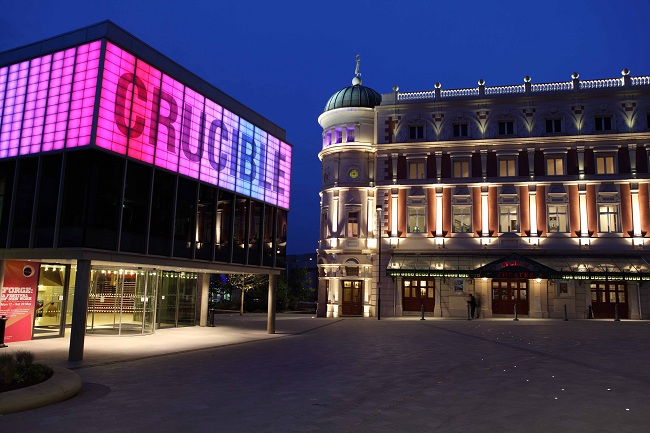
Sheffield Theatres, which will employ an equal numbers of male and female actors
Theatres take action to address gender imbalance
Sheffield Theatres has pledged to “run against current stereotypes” and employ an equal number of male and female actors throughout each season.
Artistic directors, chief executives, and senior creative staff at eleven major theatres have pledged to take action to redress the gender imbalance in theatre. The move follows their participation in a programme aimed at shedding light on the barriers preventing talented women from rising to the top of the theatre industry, and helping organisations to address them. Research into the gender of artistic directors in the 179 theatres or theatre companies in Arts Council England’s National Portfolio has revealed that 63% are male, and in the 46 larger organisations that receive £500k or more, that figure rises to 76%. This is despite the fact that of the 1,153 people registered as part of the Young Vic’s Directors Network, 60% are female, and a similar proportion of women graduate from post-graduate Directing courses. The Advance Programme, led by Tonic Theatre and supported by the Paul Hamlyn Foundation has guided the theatre leaders though a six-month period of activity to explore not only where barriers to female talent exist within their organisations, but also why.
Key to the programme’s approach was each theatre’s initial investigation of “how things are currently working” in their organisations, which sought to understand where barriers to women exist. Based on the outcomes of their investigations, the organisations were tasked with finding new ways of doing things, “challenging existing preconceptions and the ‘but we’ve always done it this way’ approach”.
All the theatres now have specific plans in place for how they will create change within their own organisations, but they are also starting to consider how they can drive for industry-wide change. Sheffield Theatres has pledged: “To employ an equal number of male and female actors throughout each season and ensure that female roles also have prominence and run against current stereotypes.” In its planning for Spring/Summer 2015, the balance of gender is now “part of every programming conversation internally and externally”.
English Touring Theatre discovered that personal safety was a practical, gender-specific issue that could be addressed: “We realised that actresses and female stage managers may not know when bookings their digs whether the route home is (or feels) unsafe” or “what facilities there would be and what condition they would be in.” As a result the company is upgrading and improving its digs list to include photos of rooms, volunteered by hosts, and asking them questions regarding the route from the theatre to the digs: “We will also start asking acting companies who review digs to comment on how safe they felt the area in which the digs are situated were.”
Sam Potter, Creative Associate at Headlong, commented on the process and its outcomes in her blog: “The biggest thing I got from Advance… was the initial thrill that came from walking into a room on the first day and discovering that the RSC, the Tricycle, the Almeida, Pentabus, The Gate, Sheffield Theatres, ETT, the West Yorkshire Playhouse, the Young Vic and Chichester were all just as concerned about improving gender balance in the theatre as we were, and that they were all just as committed to making it happen. That first moment gave me a thrill of optimism that change was possible. This hasn’t left me and it has been crystal clear from everything we did with Advance that change has to come from an industry-wide movement. It’s not possible for any one company to address gender inequality alone.”
Join the Discussion
You must be logged in to post a comment.